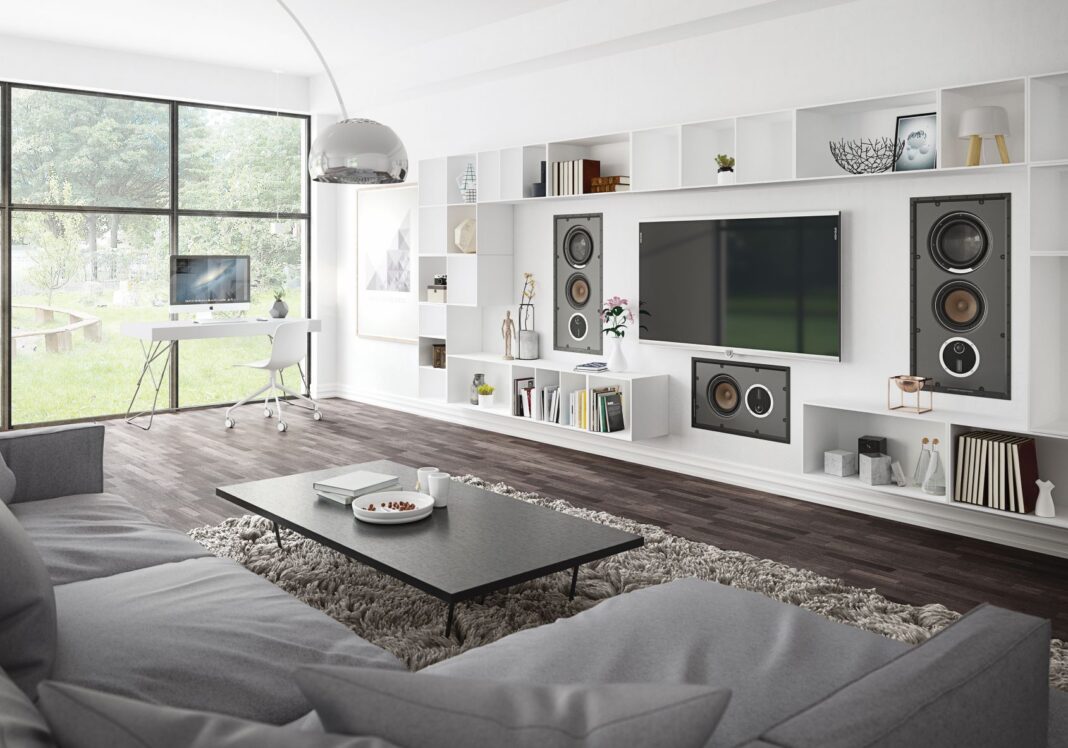With the rise in digital entertainment, it’s no surprise that consumers are investing in quality audio systems and technology to watch on-demand television. But what makes a great home theatre? We went to the experts …
Design basics
Acoustics, room automation, projectors, UHD, LED – it’s easy to believe that designing a home theatre room can be confusing. However, Stewart Altoft, Director of AP Interiors, says five tips can keep the process simple:
Budget: By far most important, Stewart says to break your budget down and work out how much you can put aside for equipment and renovations.
Acoustics: There are two points to acoustics – sound/noise control and audiovisuals. Noise control is controlling noise transference between walls and ceilings. By increasing your sound rating of the room, it will create a better surround sound effect. Audiovisual is what equipment do you want to run in the theatre room for audio. This can be confusing so finding a local professional can help.
Lighting control: Controlling artificial and natural light can be as simple as dimmers for down lights through to complete automated smart rooms. The more natural light you can block out will result in less reflection which makes for better viewing.
Visuals: This is simply anything the eye can see, from audio visuals through to visual features in the room.
Viewer comfort: Put simply, what seating arrangements do you want? Bean bags, two- or three-seater lounge, recliners or on-trend theatre room seating. Also, consider how many people will be using the theatre room at any one time.
Overall, Stewart says “do your homework. The best part about the room is it’s yours and you can do whatever you like”.
Turn it up
When choosing a sound system for your home, it’s important to start by thinking about what you’re using it for. Sergiy Bobrovnychyy, Kogan.com Director of Exclusive Brands, offers these top tips:
- When it comes to simple speakers for music, if you’re looking for something portable to take from room to room, go for a wireless speaker and ensure it has Bluetooth capability. If you’re looking for optimal sound, choose an option with high RMS wattage. The higher the wattage the better, and anything over 40 watts will give you decent sound.
- A sound bar is a great option for those looking to amplify sound on the TV. You can get these with a HDMI cable to connect to your TV. For those looking to go super premium, choose a sound bar with Dolby Atmos sound, but these are very expensive.
Talking TVs
Knowing what your viewing habits are can help inform your choices when it comes to which equipment is right for you.
Sergiy says the resolution on your TV is an important factor when choosing between different models.
“If you’re looking for a new TV, it’s a good time to consider investing in a 4K option, as many of these are very affordable and provide great picture quality. If you have a higher budget, 8K TVs are another option, although keep in mind there’s limited models available, and the technology isn’t quite there yet.”
Another factor is display. For those looking to keep it affordable, LED is a great option, as it’s also the best for energy consumption. A level above this is OLED technology, which is still expensive as it’s a relatively new technology.
Finally, there’s also the difference between a Smart TV and a ‘normal’ TV. The rise of Smart TVs is fairly recent, and there have been a lot of innovations in the space since this technology was first introduced. “If your household has an Apple TV, Telstra TV or other functionality that allows you to make it ‘smart’, then getting a Smart TV isn’t necessary for you. However, Smart TVs work well for those looking for ease of use and the interface on most is easy to navigate. Ultimately, if you watch a lot of your TV on streaming services, then a Smart TV
More stories:



